Sightseeing Spots
Search Results58
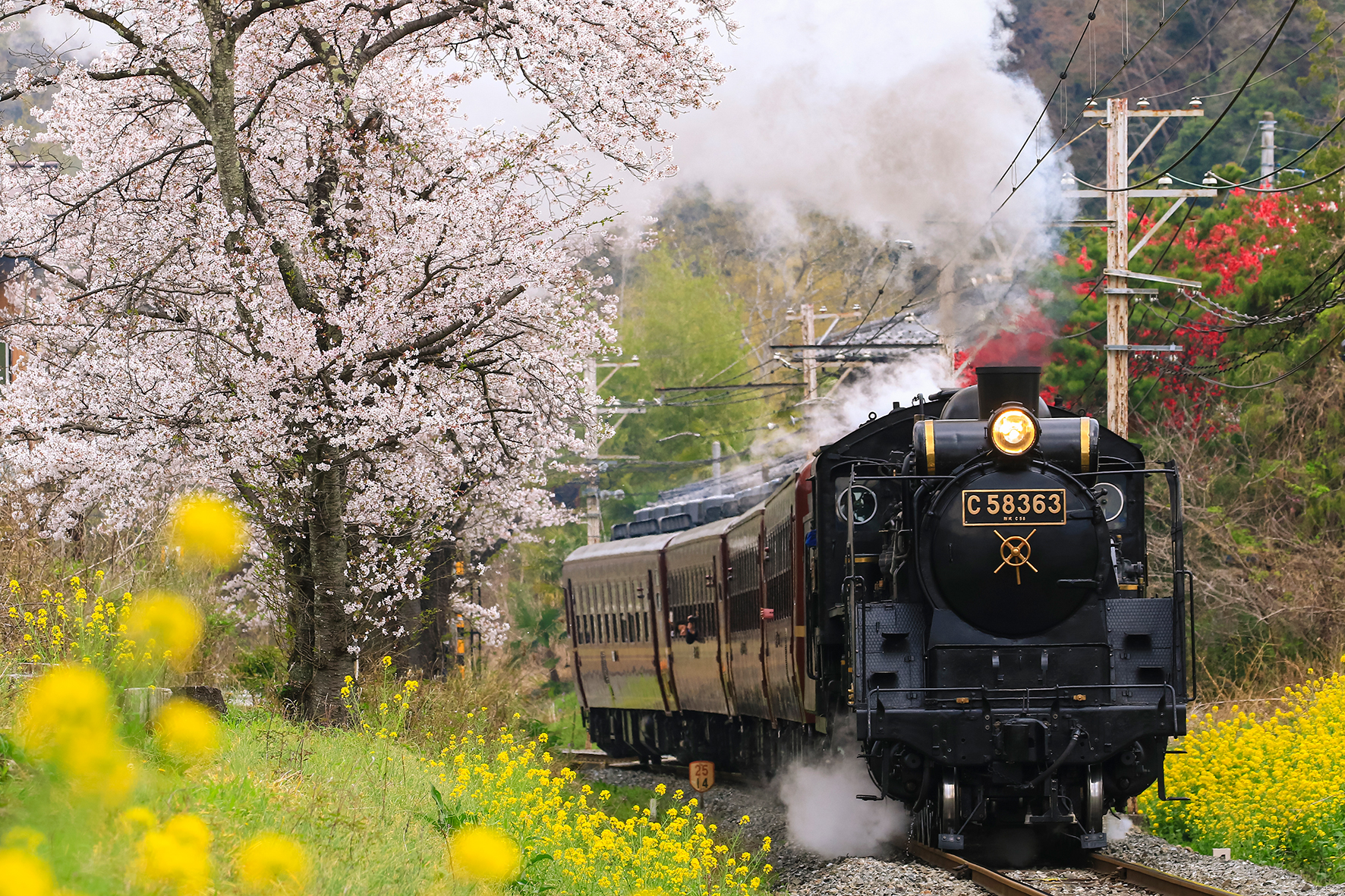
The SL Paleo Express is a historic steam locomotive that runs through the scenic Chichibu region of Saitama, just a short trip from Tokyo. Operating between Kumagaya and Mitsumineguchi, this nostalgic train ride takes passengers past mountains, rivers, and picturesque countryside landscapes. Along the way, travelers can enjoy the breathtaking views of Nagatoro, famous for its dramatic river and rock formations. Ideal for train enthusiasts, families, and anyone seeking a unique day trip from Tokyo, the SL Paleo Express is one of the top attractions in Saitama and a must-see for visitors exploring the region.
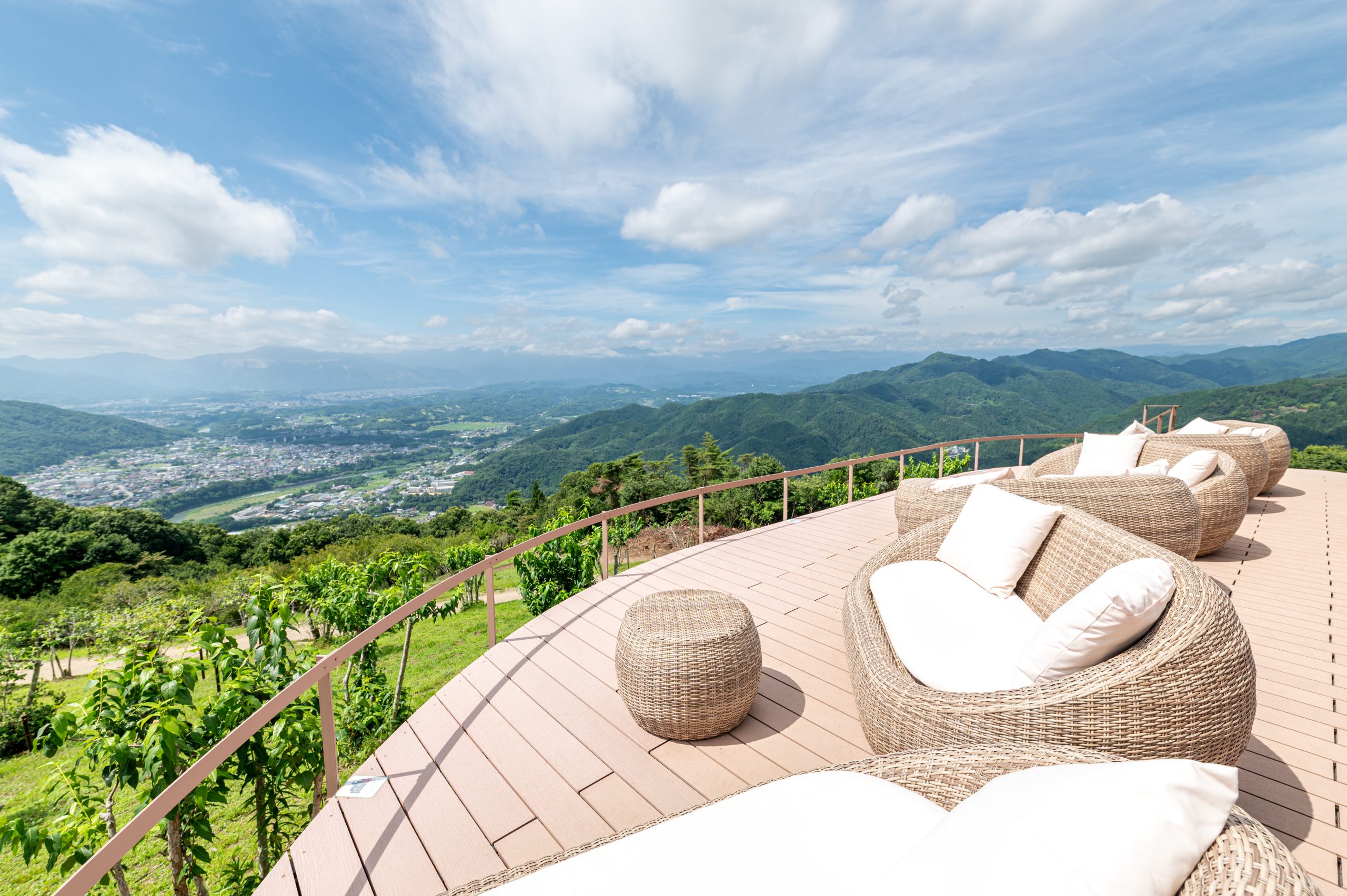
Susabino Terrace offers stunning mountain views from the summit of Mt. Hodosan in Nagatoro, Chichibu. It’s a great spot for a day trip from Tokyo or exploring Saitama’s hidden gems. Enjoy drinks or light snacks while relaxing at photo spots, a view counter, benches, and a lounge area. Perfect for couples, families, and nature lovers. The terrace is surrounded by wintersweet trees, and from mid-January to late February you can enjoy panoramic views of yellow blossoms and their sweet fragrance. For a peaceful, scenic escape near Tokyo, Susabino Terrace is a must-visit!
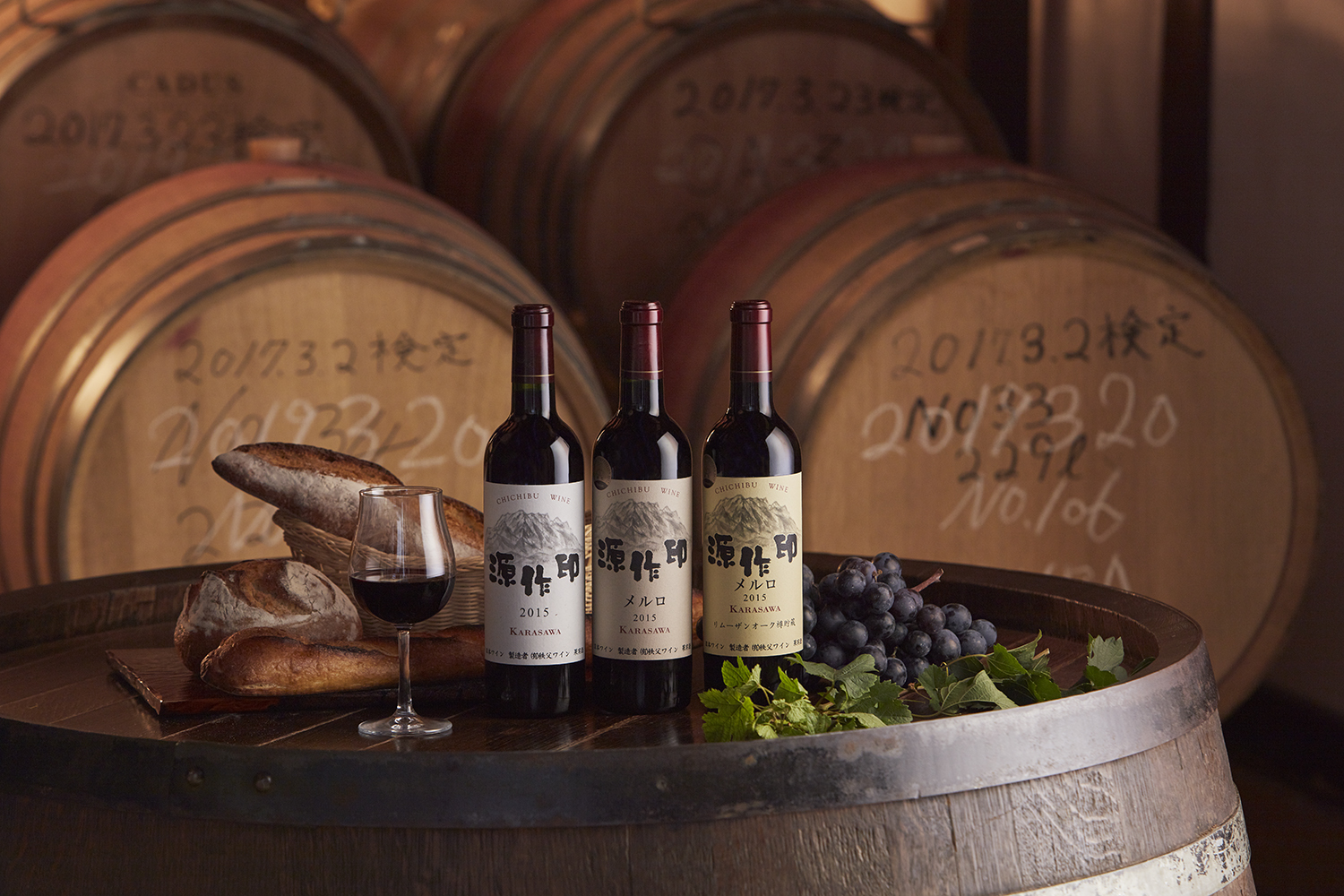
Founded in 1940 by Gensaku Asami, Chichibu Wine is the oldest winery in Saitama. Known for its award-winning wines and deep local roots, it gained early recognition when a French priest compared its wine to Bordeaux. Visitors can enjoy tastings and learn about the winemaking process on-site.
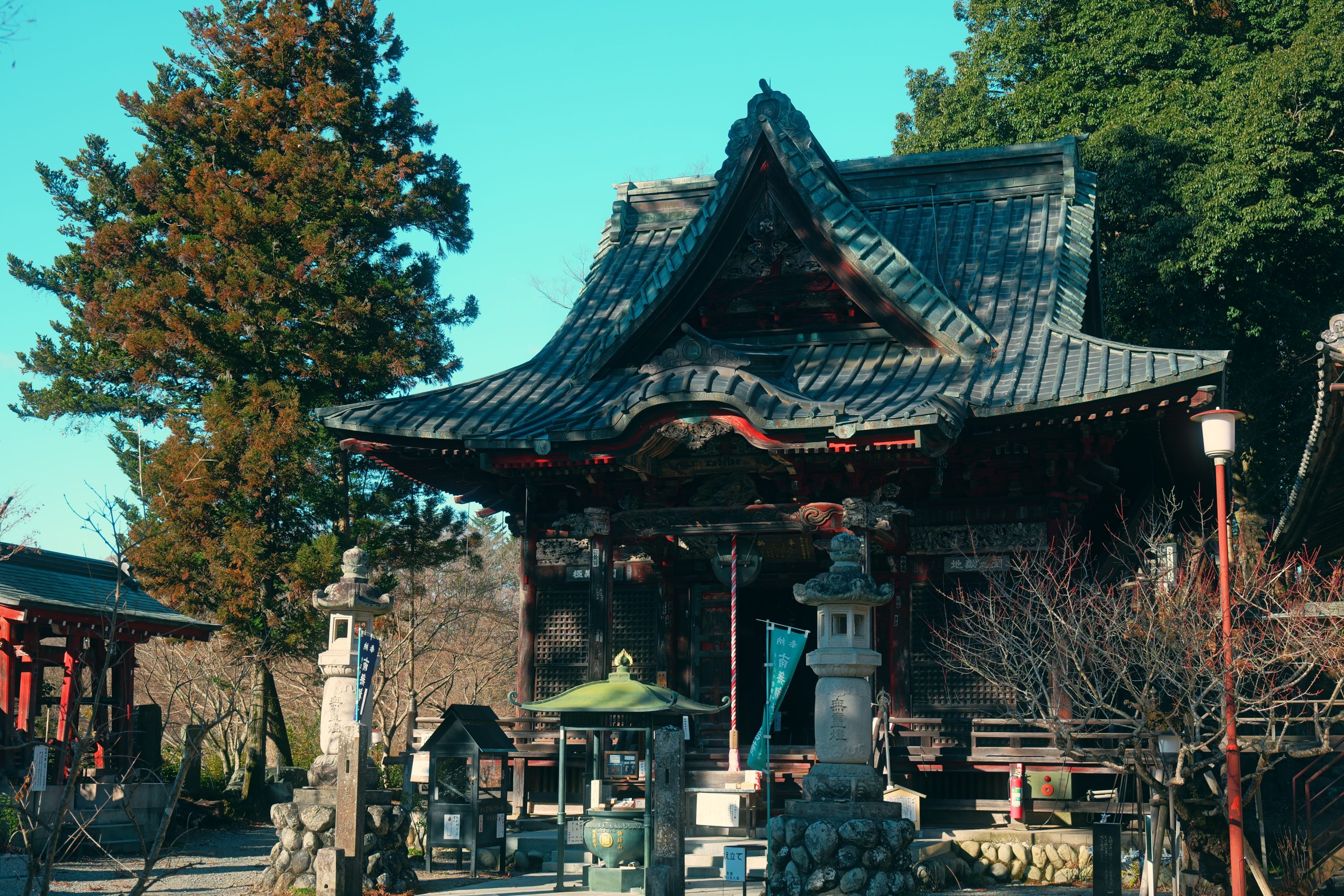
Shimabu-ji Temple is the No.1 temple of Chichibu Fudasho (34 sacred places of the Kannon) . The main hall (Kannon-do), built in 1697, has been designated as a tangible cultural property of Saitama Prefecture. The carvings on the front balustrade, 'Jigoku no zu' and 'Gokuraku no zu', are magnificent. The main hall enshrines the deity Otasuke Kannon, who is said to help people out of their troubles and suffering. The Great Ceremony held every year on 24 August in the Shishoku Shokudo to the right of the main hall is also famous. It is a very lively gathering of monks from Chichibu, regardless of denomination. This event is famous as one of the three major offerings in the Kanto region, along with the Gyokusoin no Daisegaki in Saitama City and the Dojo Shigaki in Eifukuji in Sugito-cho, Kitakatsushika-gun.
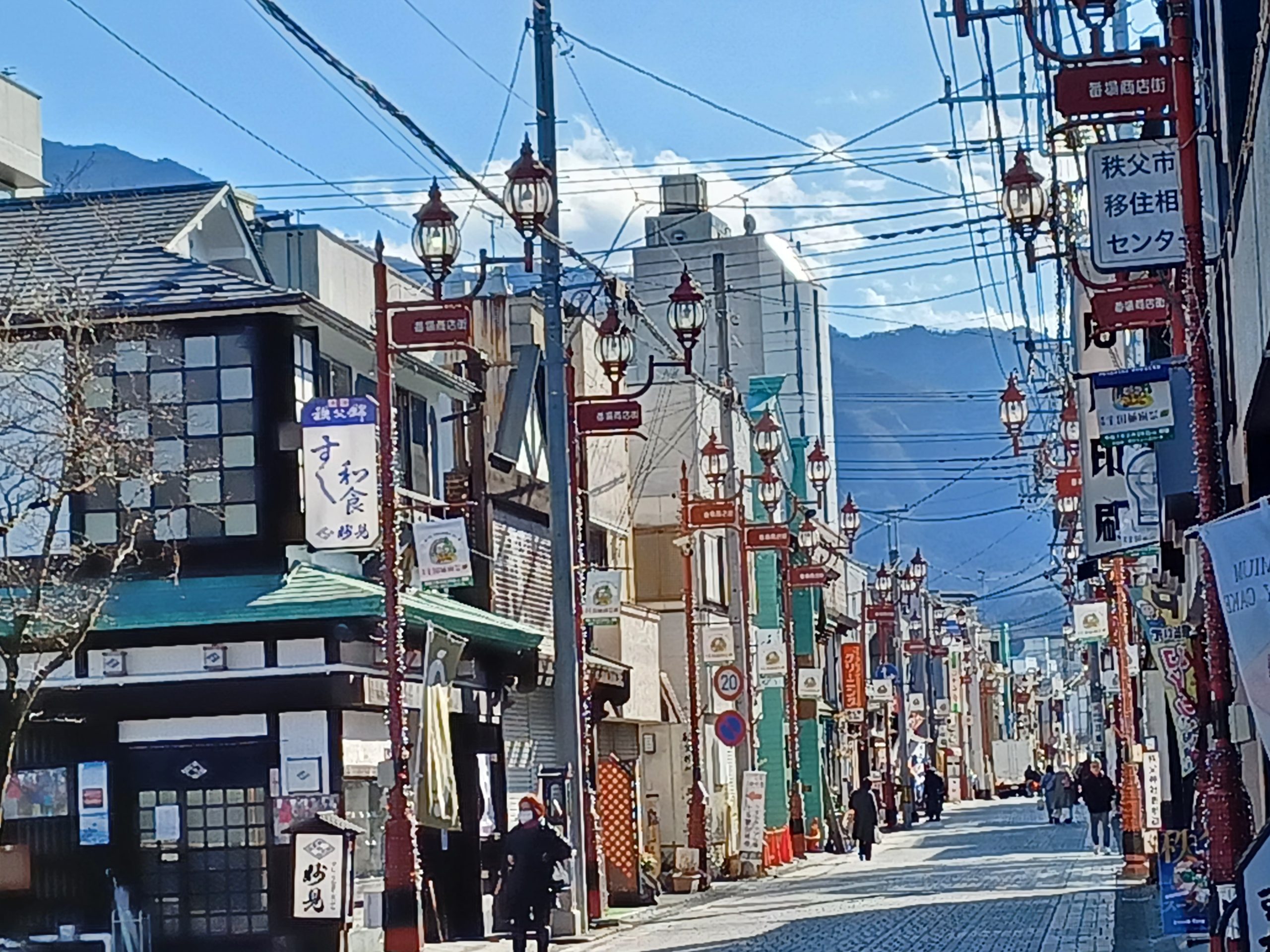
Chichibu Shrine has long been an important presence in the town and remains a popular spot for Chichibu residents. Many structures dating from the early 1900s line Banba Street, the cobblestone road that leads to the shrine, providing a nostalgic atmosphere that recalls times gone by. Many shops still operate in buildings designated Registered Tangible Cultural Properties by the national government, allowing visitors to travel back in time to an earlier Japan.
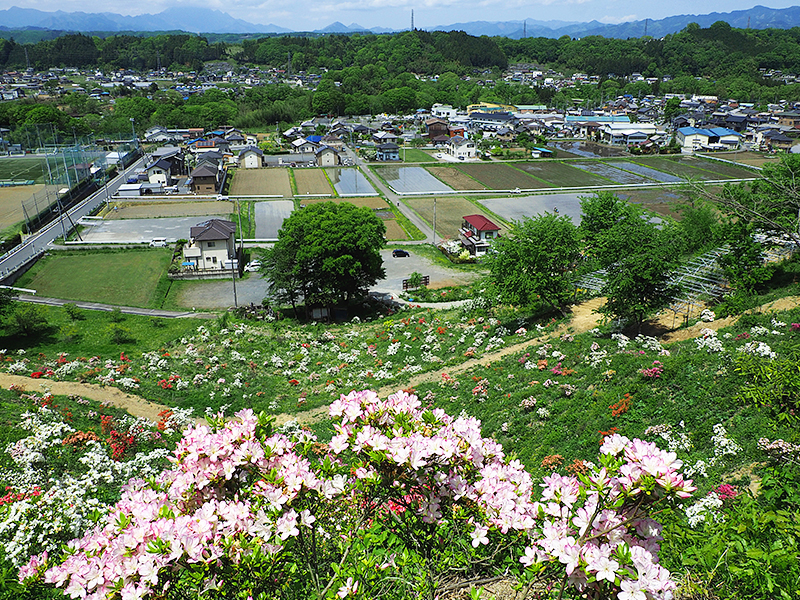
This small, charming hill of approximately 4 hectares has been maintained by local residents and volunteers as a gathering place to watch flowers bloom. Visitors can enjoy a carpet of greenery and mainly white flowers like out of a fairytale; over 6,000 flowers and trees that change from season to season. The town also collaborated with Musashino Art University for a joint project between government and academia to create three integrated artworks, adding even more charm to the park.
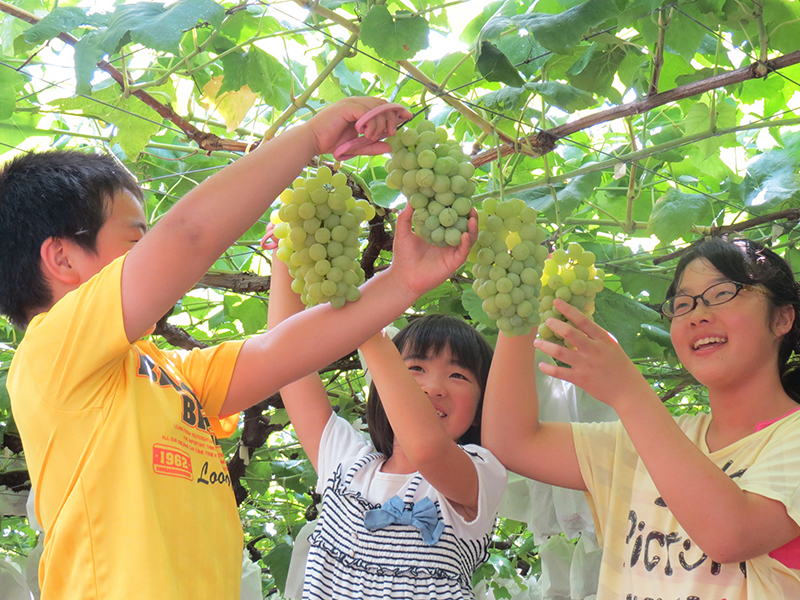
Please contact the farms listed in the link below for information about grape picking in Yokoze Town! Prices vary depending on the type of grape. You can also purchase grapes at the Ashigakubo Roadside Station (The farms will ship grapes when they are ready to eat. We apologize for any inconvenience if they are sold out). All farms incorporate appropriate hygiene precautions for a safe and comfortable visit.
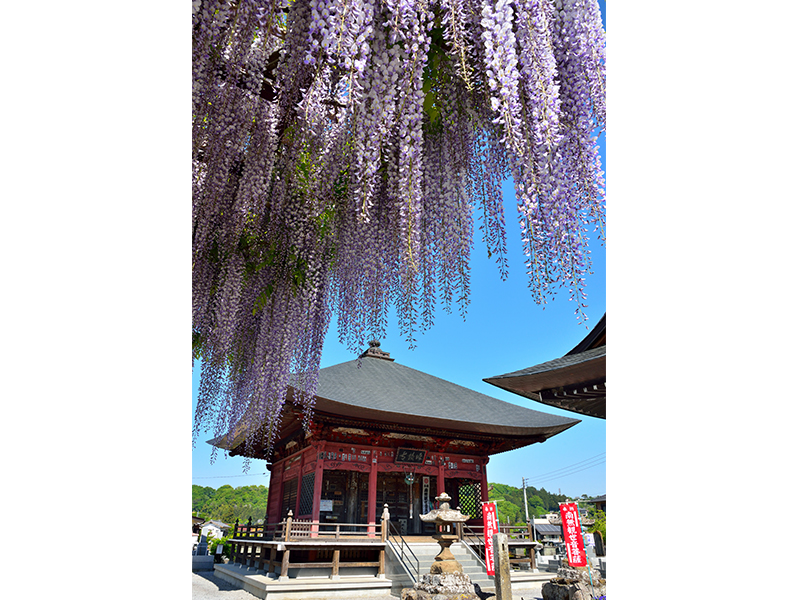
During wisteria season, you can enjoy vines of purple wisteria flowers descending from the trees in the precincts of Gokado Temple on Mt. Ogawa. Magohachi Honma, who built the temple, spent a night discussing the art of waka poetry with a traveling monk to finally master its secrets, and thus named the temple "Gokado" (words and songs temple). According to legend, the monk was said to have been the incarnation of Kannon, the Goddess of Mercy. The stone Buddha in the Koshinto pagoda on the right side of the hall is one of few existing in Chichibu. Collectible goshuin seals are available at Chokoji Temple, about 250 meters away.
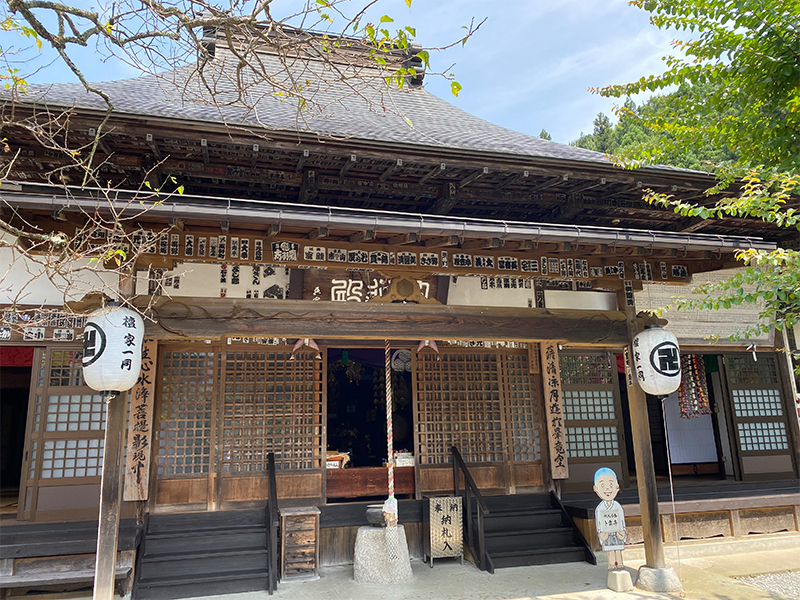
At Bokuunji Temple of Mt. Kōyō, also known as Oginodo, the main deity of Saint Kannon is said to have once stood on the summit of Mt. Bukō. Bokuunji Temple is also dedicated to rare items such as a Seiryoji-style Sakyamuni statue, a picture scroll of good fortune, and a tooth of Yamanba (a mountain witch). A magnificent view of Mt. Bukō is visible from the front of the temple.
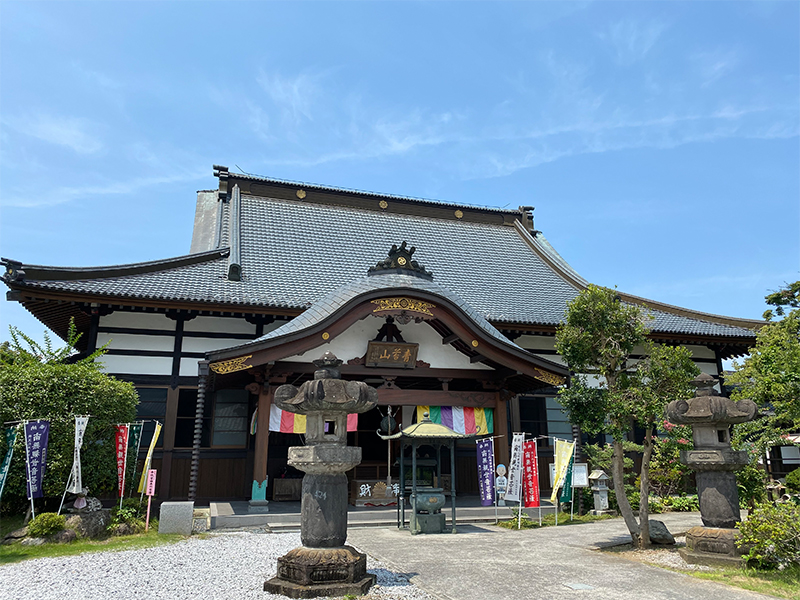
Mt. Seitai Hōchōji Temple, the seventh sacred site and temple, is called Ushibusedo, and the main deity is the eleven-faced Kannon. The eleven-faced Kannon was originally located at Ushibuse in the third ward of Negoya. Due to a disaster in 1782, it was moved to the main hall of Hōchōji Temple, where it has been enshrined ever since. Hōchōji temple is called "Fudasho No.7," also "Mt. Seitai," and it follows the Sōtō school of Buddhism. The temple was founded by Ryodo Kansei, who passed away in 1606. The founder of the Buddhist sect here was Shigekata Uchida, the second generation head of the Uchida family, and the Uchida family is said to be of the Fujita lineage, after adopting Hōjō Ujikuni as a son-in-law.
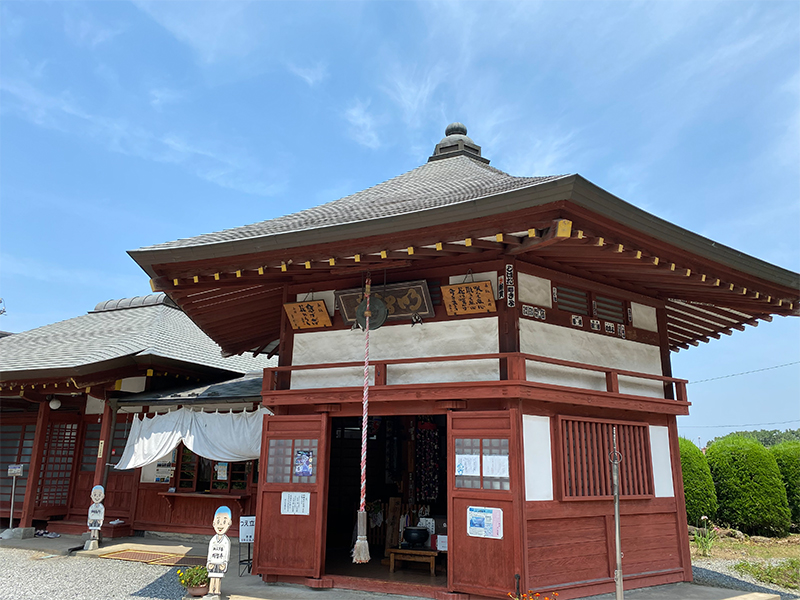
A temple for safe childbirth and child-rearing, and protection from evil. The main deity of the temple, Nyoirin Kannon, or Cintamanicakra, is said to be the God of Mercy and Wisdom, who holds a wish-fulfilling jewel that removes evil and purifies the clouded mind, relieves suffering, and bestows prosperity by giving gold and silver treasures. In the precincts of the temple are three Muromachi period (1336-1573) blue stone pagodas of the three Amitabha images and a mound of letters from the first year of the Hoei era, in which women wrote down their wishes and deposited them.
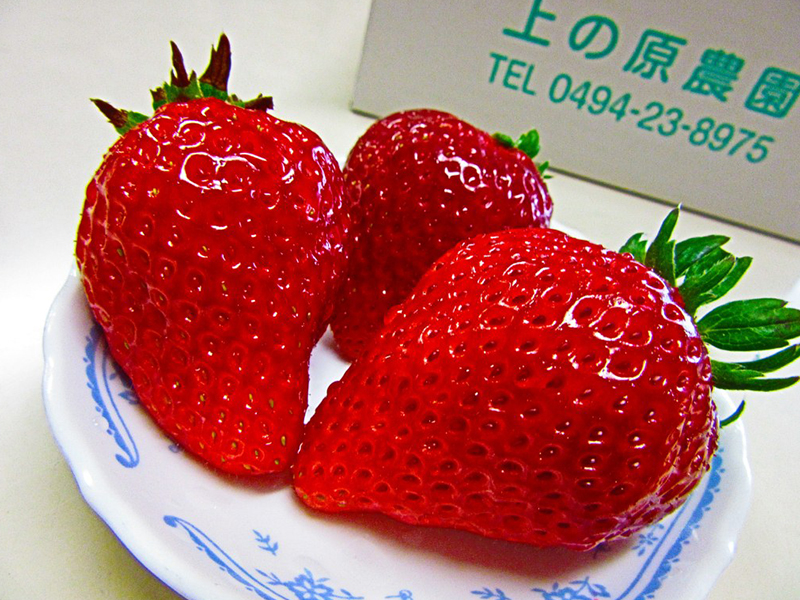
Enjoy the all-you-can-eat package at the farm, or pick and take the strawberries home instead! It's possible the all-you-can-eat will be finished depending on the season's harvest. All-you-can-eat varieties: Beni-poppe, Tochiotome, Yayoihime, Souvenir varieties: Amarin, Beni-poppe, Tochiotome, Yayoihime
This site uses cookies to improve the user experience. If you continue to browse, you consent to the use of cookies on this site. Accept
CONTACT
